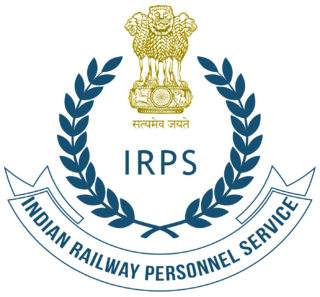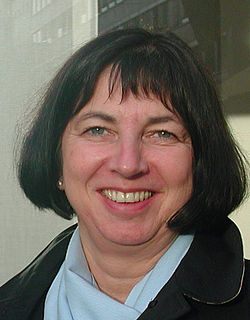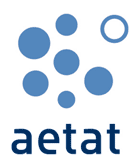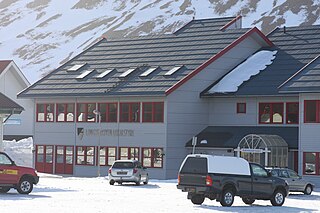The politics of Norway take place in the framework of a parliamentary representative democratic constitutional monarchy. Executive power is exercised by the Council of State, the cabinet, led by the Prime Minister of Norway. Legislative power is vested in both the government and the legislature, the Storting, elected within a multi-party system. The judiciary is independent of the executive branch and the legislature.

The Norwegian Confederation of Trade Unions is a national trade union center, decidedly the largest and probably the most influential umbrella organization of labour unions in Norway. The 21 national unions affiliated to the LO have almost 900,000 members of a Norwegian population of 5 million. The majority of affiliated unions organizes traditional blue collar workers, but the largest affiliate is the Norwegian Union of Municipal and General Employees which makes up more than a third of all members. LO is affiliated to the ITUC and the ETUC. Gerd Kristiansen was elected leader on 6 May 2013 for a four-year period.
Avinor AS is a state-owned limited company that operates most of the civil airports in Norway. The Norwegian state, via the Norwegian Ministry of Transport and Communications, controls 100 percent of the share capital. Avinor was created on 1 January 2003, by the privatization of the Norwegian Civil Aviation Administration known as Luftfartsverket. Its head office is in Bjørvika, Oslo, located on the seaside of Oslo Central Station.

The Fafo Research Foundation, also known as the Fafo Foundation or just Fafo, is a Norwegian research foundation, owning a research institute: The Fafo Institute for Labour and Social Research. The institute conducts social research both in Norway and internationally. Fafo has offices in Oslo and Beijing.

The five Regions of Denmark were created as administrative entities at a level above the municipalities and below the central government in the public sector as part of the 2007 Danish Municipal Reform, when the 13 counties (amter) were abolished. At the same time, the number of municipalities (kommuner) was cut from 270 to 98.

The Indian Railway Personnel Service (IRPS) is a Prestigious Class - 1 / Group A cadre of Civil Servants of the Government of India. The officers of this service are responsible for managing the Human Resources of the Indian Railways which has a work force of about 1.4 million employees. It is the only civil service of its kind in India and it creates a cadre of bureaucrats specialized in human resource management in government of india.

The Ministry of Social Affairs and Employment is the Dutch Ministry responsible for Social Affairs, Employment, relations between Employers and Employees, Social security, Trade unions and Emancipation. The Ministry was created in 1918 as the Ministry of Labour and had several name changes before it became the Ministry of Social Affairs and Employment in 1981. The Ministry is headed by the Minister of Social Affairs and Employment, currently Wouter Koolmees.
The Royal Norwegian Ministry of Labour and Social Affairs is a Norwegian ministry established in 1916. It is responsible for the labour market, the working environment, pensions, welfare, social security, integration, immigration, asylum, minorities and the Sami. Since 16 December 2015 the department has been led by Anniken Hauglie.
The Ministry of Labour & Employment is one of the oldest and important Ministries of the Government of India. The Ministry of Labour and Employment is India's federal ministry which is responsible to protect and safeguard the interest of workers in general and the poor, deprived and disadvantaged sections of the society. The Ministry aims to create a healthy work environment for higher production and productivity and to develop and coordinate vocational skill training and employment. However, Skill Development responsibilities, such as Industrial Training and Apprenticeship responsibilities were transferred to the Ministry of Skill Development and Entrepreneurship from 9 November 2014 The Ministry launched the National Career Service portal on 20 July 2015 to help bridge the gap between job providers and job seekers.
The Illinois Department of Human Services (DHS) is the code department of the Illinois state government responsible for providing a wide variety of safety net services to Illinois residents in poverty, who are facing other economic challenges, or who have any of a variety of disabilities or health challenges. As of 2006, it was the largest administrative agency of the state of Illinois in terms of state employee headcount, with 14,057 employees.

Joakim Theodor Haagaas Lystad is a Norwegian civil servant. He served as the first Director-General of the Norwegian Food Safety Authority from 2003 to 2010, building the organization. From 2010 to 2015, he was the Labour and Welfare Director of Norway, i.e. the head of the Labour and Welfare Service and the Labour and Welfare Administration and responsible for a third of the state budget of Norway. He is now a special adviser in the Ministry of Health and Care Services.

Sigrun Elisabeth Vågeng is a Norwegian businessperson.
In India, a municipal council, municipality, Nagar Palika, Nagar Palika Parishad is an urban local body that administers a city of population 100,000 or more. However, there are exceptions to that, as previously Nagar Palikas were constituted in urban centers with populations over 20,000, so all the urban bodies which were previously classified as Nagar Palikas even if their population was under 100,000. Under the Panchayati Raj system. It interacts directly with the state government, though it is administratively part of the district it is located in. Generally, smaller district cities and bigger towns have a Nagar Palika.

Aetat was a Norwegian Norwegian government agency responsible for battling unemployment.

The National Insurance Service was a Norwegian government agency responsible for social security.

Longyearbyen Community Council is the local government for Longyearbyen in Svalbard, Norway. It has many of the same responsibilities of a municipality. It is organized with a 15-member council which since 2011 has been led by Mayor Christin Kristoffersen of the Labour Party. The council's main responsibilities are infrastructure and utilities, including power, land-use and community planning, education from kindergarten to upper secondary level and child welfare. It operates three kindergartens in addition to the 13-grade Longyearbyen School.

Helge André Njåstad is a Norwegian politician for the Progress Party. He was elected to the Parliament of Norway from Hordaland in 2013 where he serves as the chair of the Standing Committee on Local Government and Public Administration. He was mayor of Austevoll from 2003 to 2013.
Harald Johannes Gjein is a Norwegian veterinarian and civil servant, and the current director-general of the Norwegian Food Safety Authority. He was appointed by the King-in-Council on 15 April 2011 and took office on 1 June 2011, succeeding Joakim Lystad.












